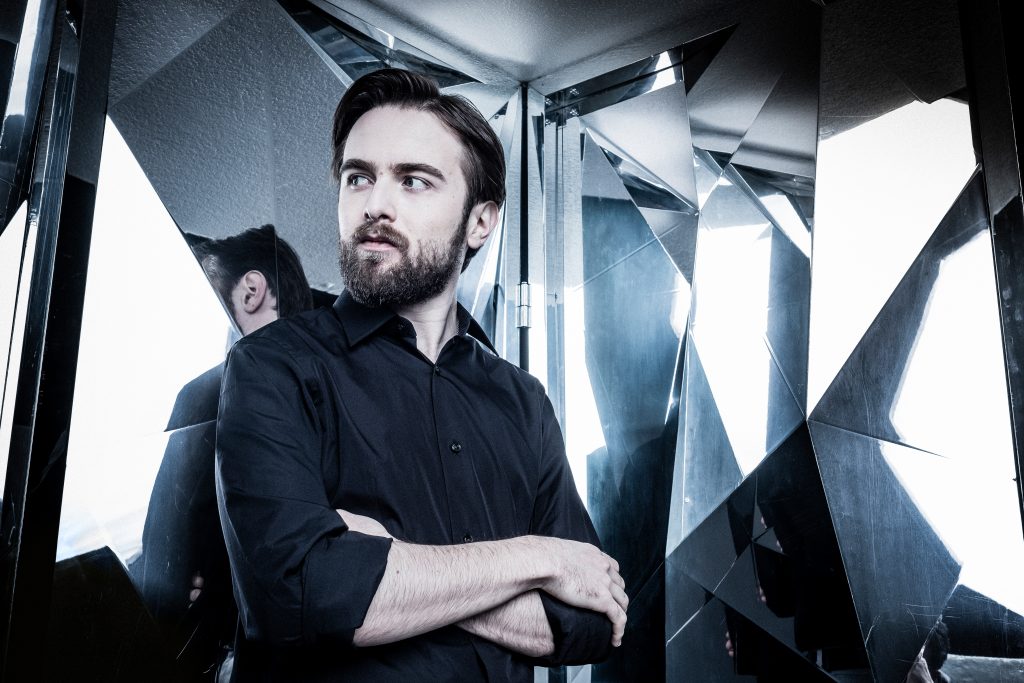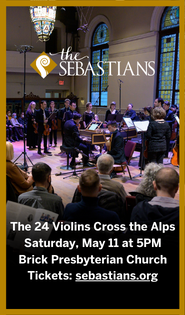The Big Easy: Trifonov makes it all sound effortless, even the “Hammerklavier”
Listening to Daniil Trifonov’s recital in Carnegie Hall Tuesday night, one’s first thought was, this pianist is such a wizard at his instrument, he makes even the gnarliest pieces sound easy.
One’s second thought was, should Beethoven’s “Hammerklavier” Sonata sound easy?
Franz Liszt is often credited with inventing the “historical recital,” mixing music of past eras with more recent pieces, which remains a standard format to this day. No doubt he put his Lisztian spin on the classics even as he was exhibiting them to the public.
Similarly on Tuesday, Trifonov put his formidable gifts and active imagination at the service of Rameau, Mozart, Mendelssohn and Beethoven, with results that were both unfailingly musical and unmistakably Trifonov. A more-than-capacity audience, spilling into several rows of seats onstage, packed Carnegie to hear him.
As he began, the Allemande from Rameau’s Suite in A minor from Nouvelles suites de pieces de clavecin seemed to waft in from somewhere long, long ago (1729, to be exact), as did the bubbly Courante and the stately Sarabande that followed. Trifonov seemingly lost himself in a nostalgic vision, and took the audience there.
Rameau at this point inserted three more “modern” character pieces–the acrobatic, hand-crossing “Les trois mains,” the swinging “Fanfarinette” and the fanfare-like “La triumphante” (The Triumphant Woman)—which Trifionov played with more presence and color than the old dances.
This suite, like Bach’s Suite No. 2 in D minor for Unaccompanied Violin, is most famous for its last movement: in Bach the mighty Chaconne, and here the brilliant Gavotte with Six Doubles (Variations). The pianist first touched the Gavotte gently, like a lute, the somber harmonies only briefly stepping into major-key sunshine. Soon enough, however, counterpoints crept in, then a chattering staccato variation, and finally arpeggios bounding up and down the keyboard, Trifonov casting restraint aside and reveling in his power.
And thus arrived the pianist from Planet Fast, a place that’s just like Earth but everything runs faster there—metronomes, conversations, the traffic on 57th Street. The eventful opening Allegro of Mozart’s F major Sonata, K. 332, flew by almost too quick to catch.
And there was a lot to catch. It’s not unusual to play Mozart fast, but capturing so many nuances of emotion at high speed was extraordinary. The effect was a little choppy the first time around, but smoother when Mozart’s many themes returned in the recapitulation. The intervening development section seethed with a Beethoven-like volatility.
The pianist decorated the luminous melody of the sonata’s Adagio with delicate coloratura. The high spirits of the Allegro assai finale often tempt pianists to rush or blur the music, but not here; Trifonov played like the wind, but right in time, with an eye on the overall shape of the piece, but also the freedom to linger or dart off when the mood struck him—an exhilarating experience.
Mendelssohn’s Variations sérieuses, Op. 54, proved a fit companion to Rameau’s Gavotte—a sober, minor-key theme blossoming into kaleidoscopic variations. While honoring the composer’s “serious” intentions—the piece was written to help raise funds for a monument to Beethoven—Trifonov’s nervous energy imbued the music with more Lisztian fire than poised, Mendelssohnian brilliance.
If the performance’s headlong momentum offered few moments to pause and reflect, the effect was not so much breathless as a kind of hold-your-breath suspense. It was something of an out-there interpretation, but it worked.
The excitement continued as, following intermission, Trifonov dashed onstage and boomed out the opening chords of the “Hammerklavier” before some patrons had settled into their seats. (In 1818, Hammerklavier was just a German word meaning “piano,” but its Wagnerian ring has attached it permanently to Beethoven’s hugely ambitious Sonata in B-flat major, Op. 106.)
Trifonov’s performance was characteristically fast, fluent, alert, imaginative, laughing at difficulties.
Beethoven described the sonata’s vexing fugal finale as “Allegro risoluto”—but who needs “resolve” when everything comes so easily? (We know that it didn’t, that the pianist had toiled a young lifetime to create that effect, but his matchless digital skills made it sound as though it did.) Beethoven’s late works are equal parts heavenly vision and struggle, and the tension between the two isn’t felt if one of them is missing.
But one had to admire the pianist’s rich palette of colors and touches, from crystalline filigree to sonorous fortissimos to an almost impressionistic fog, as the first movement unfolded with its own half-mad logic. Rarely has Beethoven’s wayward inspiration sounded so emotionally coherent.
The Scherzo, in which Beethoven impishly sends up his own grandiose first-movement theme, flashed by with deadpan humor. The lengthy Adagio sostenuto—“sustained” indeed by a slow but steady pulse—was a wonder of deep layering, with a melody in dusky chords moving under a voice singing high above, and episodes of ecstatic trills and enigmatic dialogue between the hands.
If Trifonov’s performance of the closing fugue didn’t really shake a fist at adversity, one had to marvel at his ability to make Beethoven’s tangled counterpoint rush and swirl like whitewater rapids. But as a result, the triumphant final chords were just a loud ending, not an emotional victory.
In three brief encores, the pianist brought the temperature down with a gentle jazz ballad, Johnny Green’s “I Cover the Waterfront,” glistening with Art Tatum-style runs, and quiet excerpts from Scriabin (Sonata No.3) and Mompou (Chopin Variations), the last dwindling slowly to ultra-pianissimo.
Carnegie Hall presents Kirill Gerstein in works of Chopin, Fauré, Poulenc, Liszt, Robert Schumann and Godowsky, 7:30 p.m. Jan. 18, 2024, at Carnegie’s Zankel Hall. carnegiehall.org









Posted Dec 15, 2023 at 1:44 pm by David Moran
This is just a terrific report, accurate and detailed if long and pretty generous. Salute.